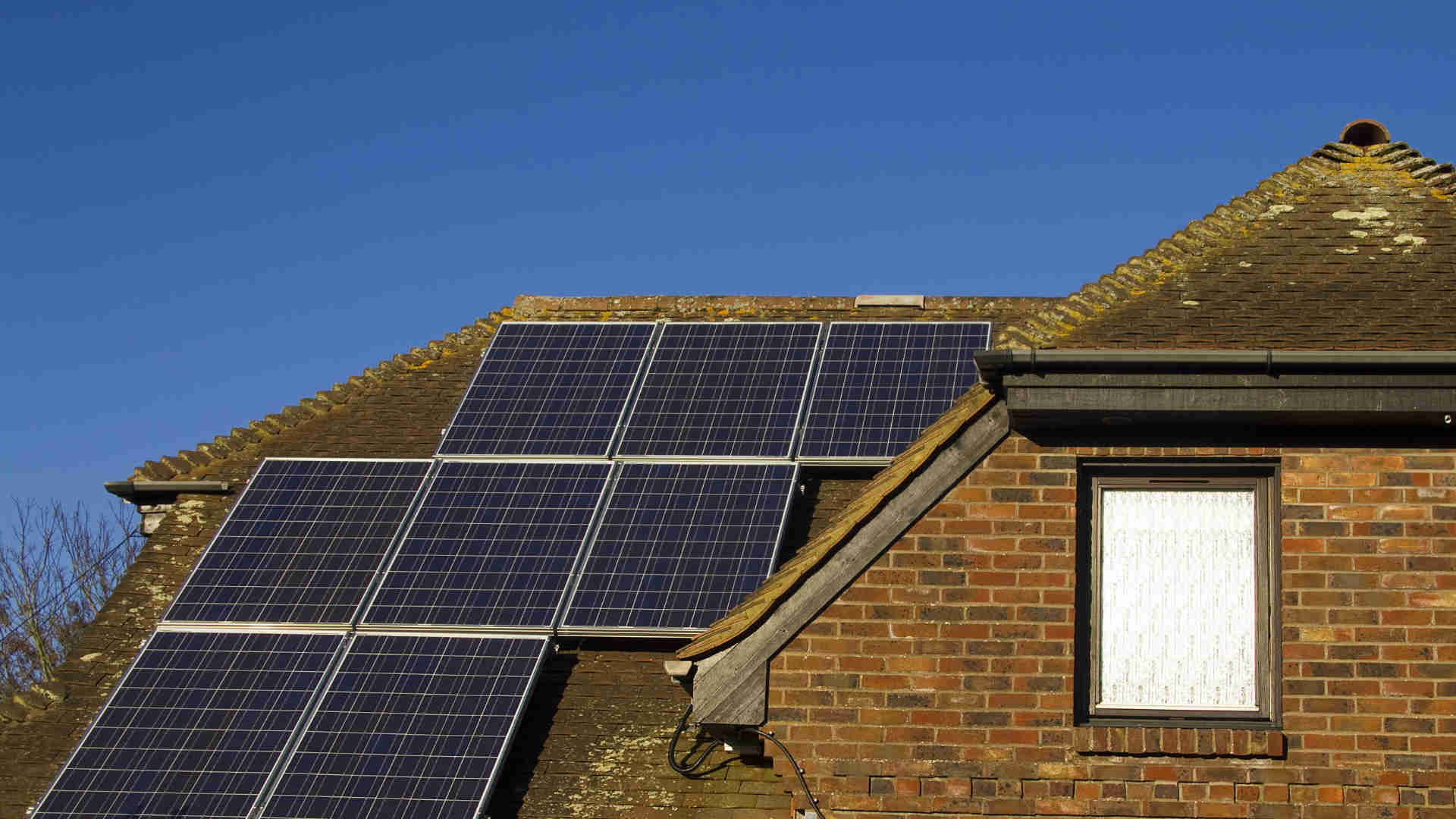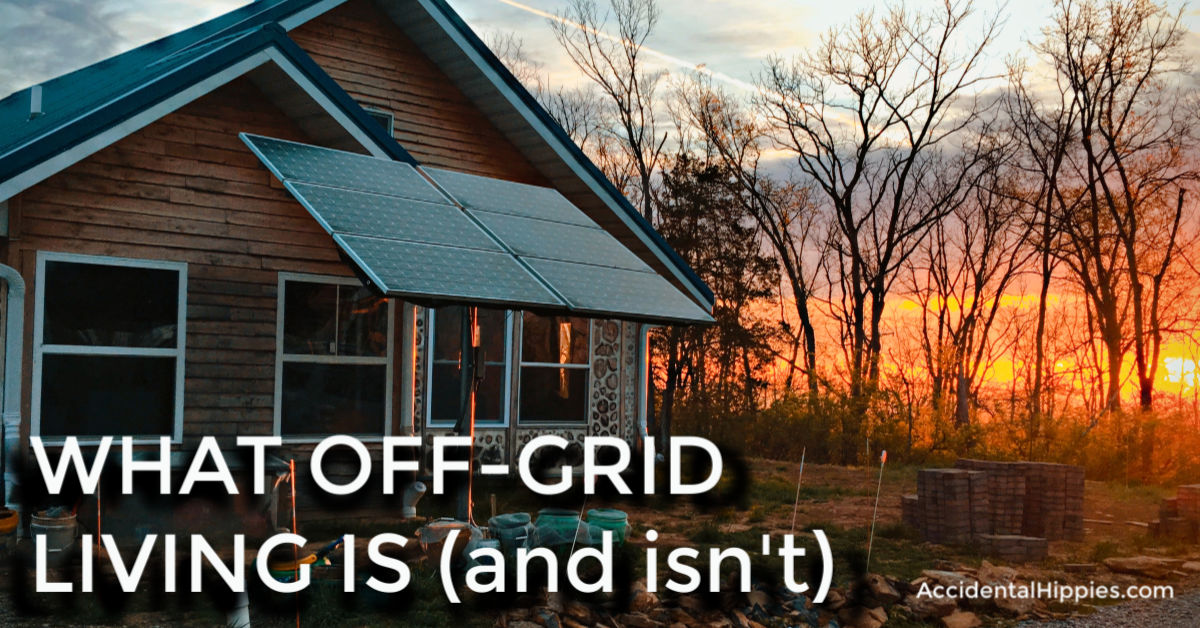Get off the grid meaning – Embarking on an off-the-grid lifestyle, characterized by self-sufficiency and disconnection from traditional infrastructure, offers both unique advantages and significant challenges. Exploring the concept of “getting off the grid,” this article delves into the motivations, benefits, and complexities associated with this alternative way of living.
Individuals seeking greater independence, environmental sustainability, and personal freedom often embrace the off-grid lifestyle. However, transitioning to this unconventional existence requires careful planning, resourcefulness, and a deep understanding of the potential drawbacks.
Defining “Getting Off the Grid”
The concept of “getting off the grid” refers to a lifestyle that aims to minimize or eliminate reliance on centralized systems and infrastructures, such as public utilities, government services, and consumer goods. Individuals who choose to live off-grid often seek greater self-sufficiency, autonomy, and connection with nature.
Motivations for Going Off-Grid
- Environmental concerns:Off-grid living allows individuals to reduce their environmental impact by using renewable energy sources, minimizing waste, and practicing sustainable land management.
- Economic reasons:Disconnecting from traditional utility systems can result in significant cost savings, especially for those living in remote or rural areas.
- Desire for privacy and independence:Off-grid living offers greater privacy and freedom from government regulations and societal expectations.
- Lifestyle choice:Some individuals embrace off-grid living as a way to simplify their lives, pursue hobbies, and connect with their natural surroundings.
Examples of Off-Grid Living
Notable examples of individuals and communities who have successfully transitioned to off-grid lifestyles include:
- The Earthship Biotecture community in Taos, New Mexico:This community consists of sustainable, off-grid homes made from recycled materials and powered by renewable energy sources.
- John Seymour, author of “The Complete Book of Self-Sufficiency”:Seymour was a pioneer in the off-grid movement, demonstrating the practicality of sustainable living on his smallholding in England.
- The Free State Project in New Hampshire:This libertarian-minded community promotes individual freedom and self-reliance, with many residents living off-grid.
Advantages and Challenges of Off-Grid Living
Off-grid living offers both advantages and challenges. Understanding these factors is essential before making a decision about this lifestyle.
Advantages of Off-Grid Living
- Increased Self-Sufficiency:Off-grid living promotes self-reliance and the ability to provide for oneself and one’s family.
- Environmental Sustainability:Off-grid systems often utilize renewable energy sources, reducing carbon footprint and promoting environmental conservation.
- Personal Freedom:Off-grid living provides a sense of liberation from societal norms and constraints, allowing individuals to live according to their own values and priorities.
Challenges of Off-Grid Living
- Access to Essential Services:Off-grid living can limit access to essential services such as healthcare, education, and emergency response.
- Infrastructure Limitations:Off-grid systems require specialized infrastructure for energy generation, water supply, and waste management.
- Social Isolation:Off-grid living can lead to social isolation, as individuals may be physically distant from friends, family, and community.
Essential Considerations for Going Off-Grid: Get Off The Grid Meaning
Going off-grid involves careful planning and preparation. Before embarking on this lifestyle, several crucial factors must be considered.
Securing land is paramount. Research local zoning regulations and consider factors such as access to water, sunlight, and potential hazards. Determine the size and location that aligns with your needs and budget.
Finish your research with information from whole home solar kit.
Establishing Water and Energy Sources
Access to reliable water and energy sources is essential. Assess local rainfall patterns and consider rainwater harvesting systems. Explore options for well drilling or spring development. Solar and wind power are popular off-grid energy sources, requiring careful system design and battery storage.
Do not overlook explore the latest data about how to go off grid cheap.
Waste Management
Proper waste management is crucial for off-grid living. Implement a composting system for organic waste. Consider incinerators or digesters for non-compostable materials. Research local regulations regarding waste disposal and recycling options.
Financial Implications
Off-grid living requires significant upfront investments. Estimate the costs of land acquisition, infrastructure setup, and equipment purchases. Factor in ongoing expenses for maintenance, repairs, and potential emergencies. Assess your financial situation and create a realistic budget.
Sustainability and Self-Sufficiency
Off-grid living embraces principles of sustainability and self-sufficiency, aiming to minimize reliance on external resources and maximize self-reliance. Sustainable practices ensure the preservation of natural resources and environmental well-being for future generations. Self-sufficiency empowers individuals to meet their own needs and reduce their impact on the environment.
Renewable Energy Generation
Off-grid living requires reliable energy sources. Solar panels convert sunlight into electricity, while wind turbines harness the power of wind. Hydropower systems utilize flowing water to generate electricity, and geothermal energy taps into the Earth’s heat. These renewable sources provide clean and sustainable energy, reducing dependence on fossil fuels and minimizing carbon emissions.
Food Production
Growing food is essential for self-sufficiency. Off-grid living often involves organic gardening, utilizing techniques like permaculture and companion planting to maximize yield and soil health. Raising livestock provides a source of protein and other animal products. Preserving and storing food ensures a steady supply throughout the year.
Water Management, Get off the grid meaning
Water is a precious resource in off-grid living. Rainwater harvesting systems collect and store rainwater for use. Wells and boreholes tap into underground water sources. Water conservation measures, such as low-flow appliances and rainwater irrigation, minimize water consumption and ensure its availability.
Community Involvement
Collaboration and community involvement play a vital role in promoting sustainability and self-reliance. Sharing resources, knowledge, and skills within a community fosters resilience and reduces individual burdens. Cooperative projects, such as community gardens or renewable energy initiatives, strengthen community bonds and enhance self-sufficiency.
Learn about more about the process of on grid solar system with batteries in the field.
Legal and Regulatory Considerations
Off-grid living can have various legal and regulatory implications, depending on the specific jurisdiction. It is essential to be aware of the zoning laws, building codes, and environmental regulations that may impact off-grid properties. Zoning laws determine the permitted uses of land and may restrict the construction of off-grid structures or the installation of certain renewable energy systems.
Building codes set standards for the construction and safety of buildings and may require off-grid homes to meet specific criteria. Environmental regulations may limit the discharge of waste or the use of certain technologies, such as wood-burning stoves.
Notice how to set up solar panels off grid for recommendations and other broad suggestions.
Responsibilities and Liabilities
Off-grid living also comes with certain responsibilities and liabilities. Property owners are responsible for maintaining their infrastructure, such as water and power systems, and ensuring the safety of their property. They may also be liable for any damage or injuries caused by their off-grid systems.
It is important to consult with legal and regulatory experts to fully understand the legal and regulatory aspects of off-grid living in a specific jurisdiction.
Conclusion
Ultimately, the decision to go off the grid is a deeply personal one, influenced by individual values, circumstances, and aspirations. Whether driven by a desire for self-reliance, environmental consciousness, or a yearning for a simpler life, those who embrace this path embark on a transformative journey that challenges societal norms and redefines the concept of home.
Clarifying Questions
What are the primary motivations for going off the grid?
Increased self-sufficiency, environmental sustainability, personal freedom, and a desire for a simpler life are common reasons.
What are some of the challenges associated with off-grid living?
Access to essential services, infrastructure limitations, social isolation, and financial implications are potential challenges.
What are the key considerations before going off the grid?
Securing land, establishing water and energy sources, planning for waste management, and addressing financial implications are crucial factors.
How can sustainability and self-sufficiency be achieved in an off-grid lifestyle?
Generating renewable energy, growing food, managing resources responsibly, and fostering community involvement are essential practices.


